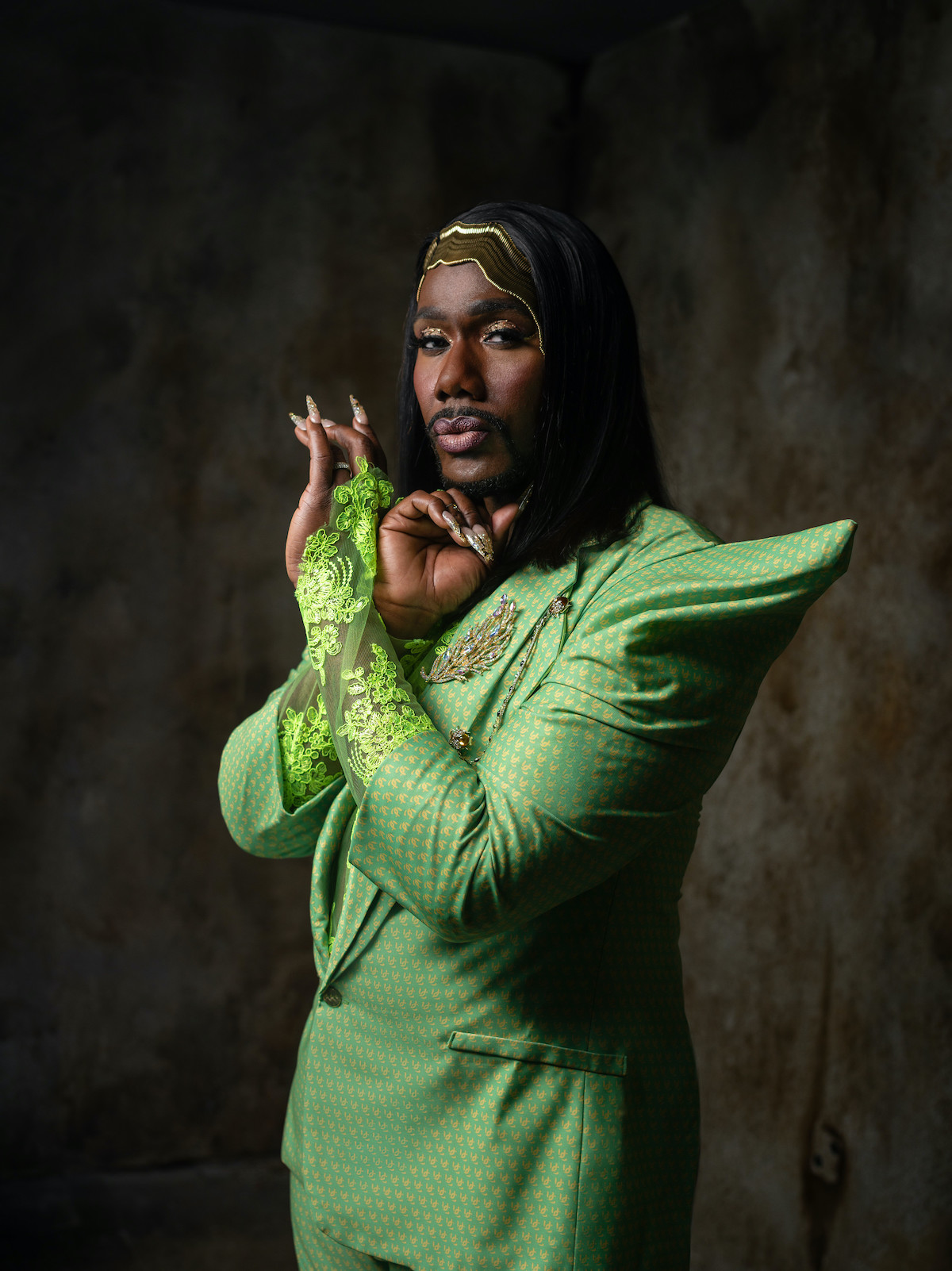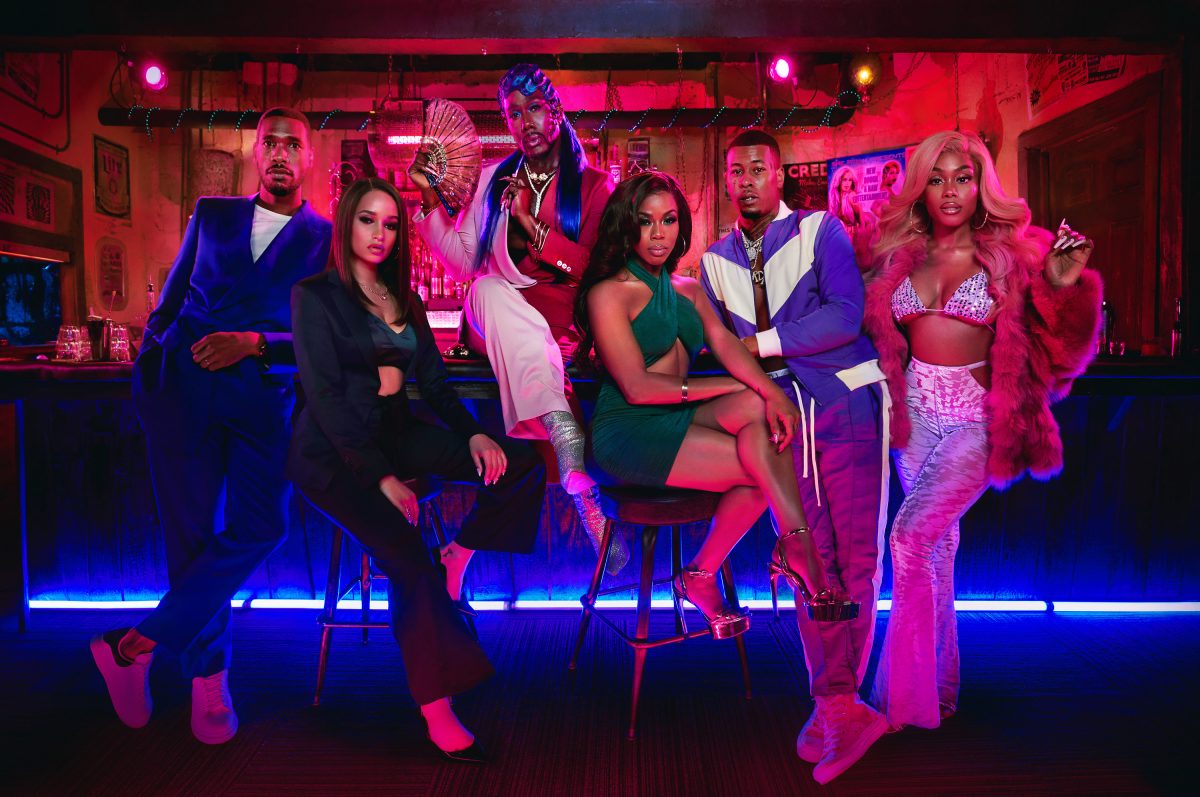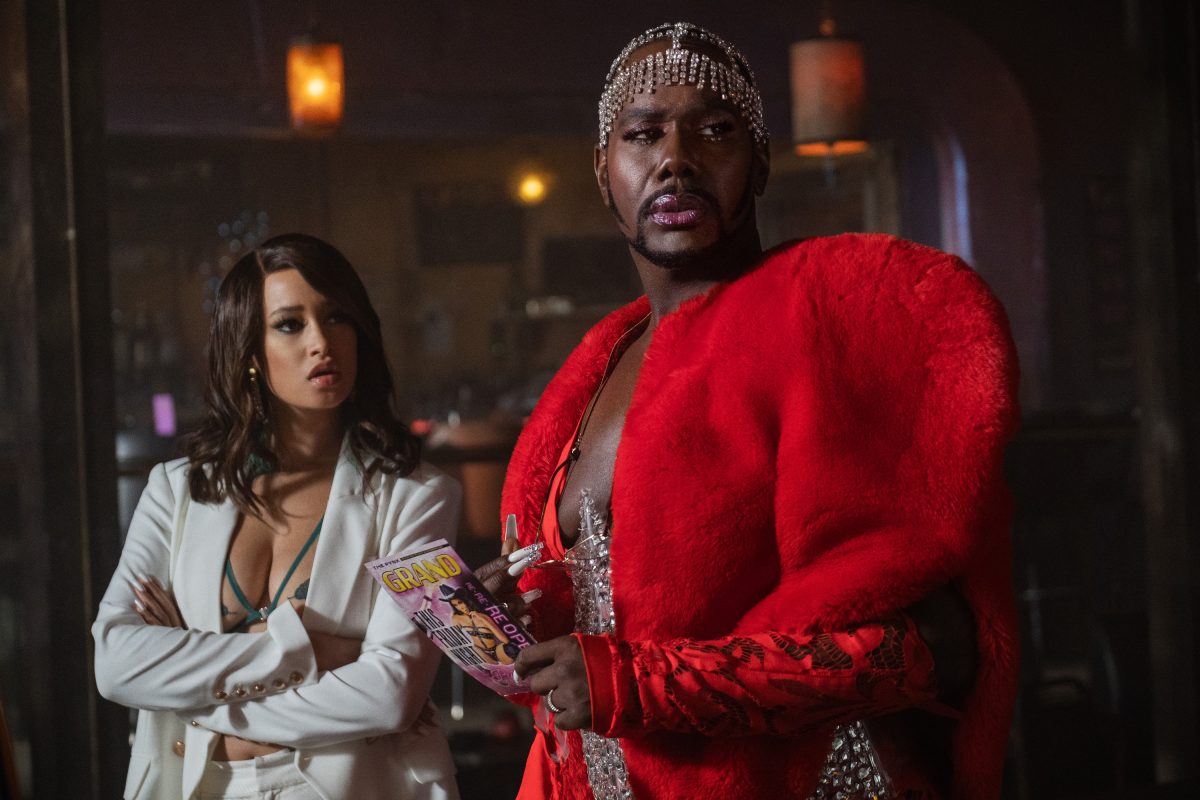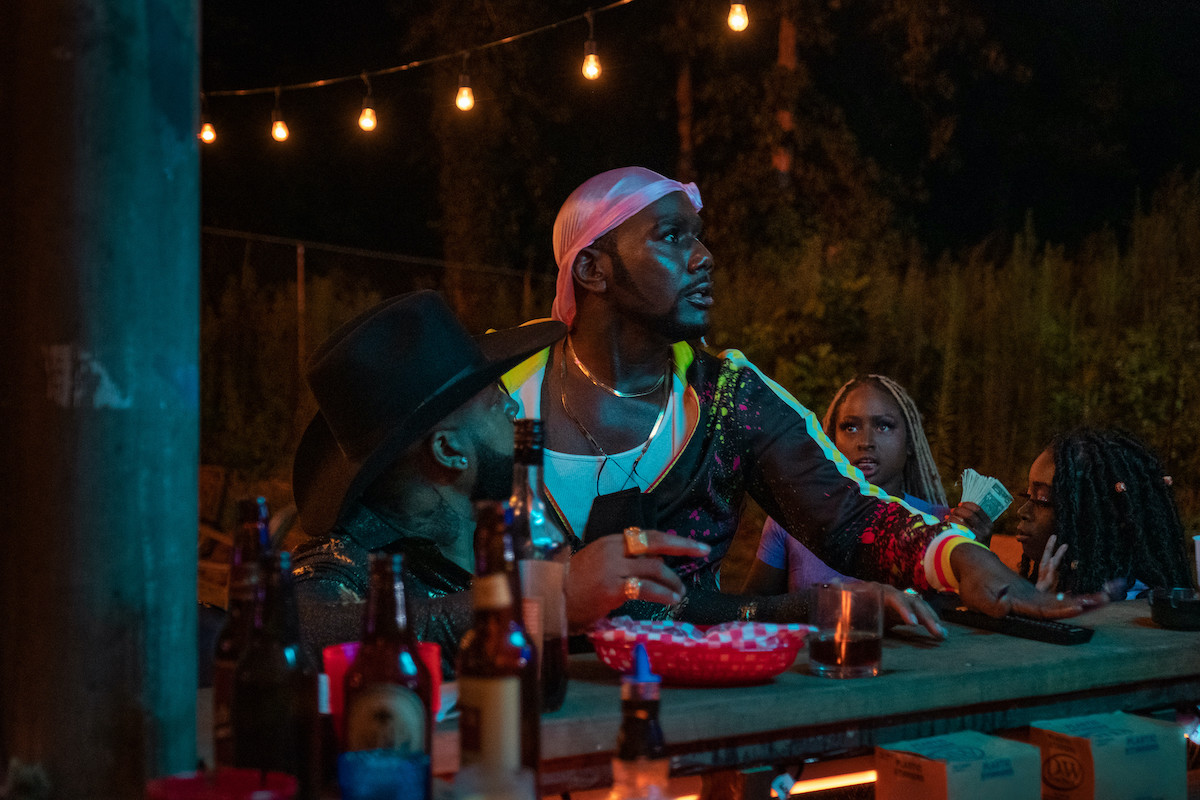
Source: Courtesy / Starz
Nicco Annan may just be one of the more visible faces in Hollywood right now thanks to how he’s popularized the role of Uncle Clifford on Starz’ P-Valley and transformed the character created for him by director and screenwriter Katori Hall. Though the actor is blessed for the ascension and celebrity playing Uncle Clifford has afforded him, he is far more dynamic. I can affirm this truth in the few minutes we shared in conversation when Annan sat down with MADAMENOIRE for an exclusive interview. Annan loves Black folks to the white meat. He loves all the parts of Blackness, including the parts of us that many want to hide, harm and throw away.
MADAMENOIRE: Hello, Nicco. How’s it going?
Nicco Annan: It is moving like a speeding, bullet train.
MN: I know that shit is right. I know that’s right.
It’s a beautiful day and the baby is being born today. She is being born!
I know that’s right, too. How did the premiere go?
It was affirming. It was also inspiring. That is a word that’s coming to me because I haven’t been able to see people and to see them really digest the work. To see them respond to the show and everything before they saw the show, it was just like Black people saw Black people. It was like, I see us all the time, but I felt appreciation for the way Black people are being represented. That’s a concise way of putting it.

Source: Courtesy of STARZ / Starz
Let me tell you something—that is so impactful, and it speaks volume to the connection between what we viewed and what’s to come
Like you said, we see Black people all the time. However, when it comes to true blue, authentic Black representation and what you all deliver with P-valley. It just hits different. You understand what I’m saying?
I do because of the way you think.
I don’t think you understand what I’m saying.
I understand because of the way you said deliver!
Deliver! OK. First, I want to say thank you on behalf of every Black person who has tuned in and those who are unfamiliar because we also feel seen. We know that you are producing something specifically for us. The show brought me through a very difficult time and pandemic aside, on a grand scale, brought the Black community through a difficult time.
Yeah.
I had a goddamn Pynk attack throughout the pandemic, and we’ve been craving and waiting for this moment. So, thank you for that and thank you for giving us inclusivity.
Yes. It’s so many levels that was so important to make sure that we touched on. It’s interesting because I’m a man of a certain size in Hollywood for so long. In Hollywood, even the New York Theater Circuit, they were not roles that made room for people who looked like me, that were dark skinned, that were full figure, to occupy space. Sexuality and identity aside, I think there was just this presumption that even when I wanted to move out to L.A. representation, was like ‘Oh, you have to lose weight. You have to do this. You got to close your gap.’
My dad is from Ghana, and I grew up with the affirmation that people who had a gap, they were special. The ancestors were giving them a little something special to distinguish themselves. I was a 12/13-year-old hearing that story from my aunt back in Ghana when I visited. That trip had changed my life and my viewpoint of myself. So, it was always so important to me to kind of include all of us in the creation of the story. People could pressure you—not in this production—but [in general].
I’m talking about the scene where you have to lose weight. You got to be a certain size. You got to have hip creases, you got to have pecs galore. Listen, you know what it is?
I do know what it is. We saw Luther struggle with weight and go through harm and self-harm in front of our eyes.
That is correct.
I get you. That’s the other thing that the Pynk delivers on and it’s not this one singular narrative. You talk about physicality. We can talk about age, the dynamic between you and Loretta Devine. We see that.
I wonder how the younger generation are connecting with elders because grandmothers are younger now. So, how does that affect really how much reference and appreciation for life that we have, or manners, and just different rearing that gets passed down from your grandmother, your great grandmother?
I feel like we’re going through this kind of Black Renaissance where some of those values are coming back and they’re working in tandem with us being inclusive. Back then, the generation before us wasn’t really as accepting. Respectability created a barrier, but I think we’re coming full circle and we’re back to taking care of one another and being more accepting. Despite what media or news portray of us, on a community level, I see young people and elder people and a beautiful bridge between them. Tell me something. I’m curious how much of Nicco is in Uncle Clifford?
I can’t say not much. I think they are very impactful, empowering parts of myself that are interwoven in the character and one o thing I just talked about is that Black pride. I think my journey of self-acceptance as a Black gay man is akin to Uncle Clifford’s journey in accepting her full self.
It’s the connective tissue of humanity that we all can feel when you see that character, whether you are a Puerto Rican plus-size woman and you’re relating to it or if you are a senior generation and you identify.
It’s a testament to me, to the crafting of the character on the page that Katori has done. I’ll take some credit for breathing some life into her. I know the conversations that we had in the very beginning, back in 2009 when she first approached me with the character, and she was talking to me about why she wanted to create this character, all of that, it was built to be inclusive of all people. I will say people can think that some of the sassier parts of Uncle Clifford the more edgy sharp–I think the edge also, I was born in Detroit.

Source: Starz / Starz
What up Doe?!
Yeah, what up Doe?! C’mon, now. Where are you from?
I’m from New York.
That is my second home. New York is my second home because I left Detroit at 17. I went to College in New York at Purchase, and I stayed there over half my life in Jamaica, Queens.
OK. I’m from Jamaica, Queens, you already know.
I’m from Rochdale, get out! Come on!
Wait—not Rochdale, c’mon! I went to school in Rochdale.
Shut up, what building were you in?
Listen—That’s my hood!
Why are we talking like we know each other, I love it!
I know right! Let me ask Nicco this, Nicco the thespian because you deserve a Tony– an Emmy as far as I’m concerned—an EGOT. How does Nicco, the craftsmen, the creative, feel about taking the character of Uncle Clifford and raising her into the pantheon of queer characters? I’m thinking of Uncle Clifford’s place among Ving Rhames’ Holiday Heart. I’m thinking of Jesse Borrego as Alexis in I like It Like That, Queen Latifah’s Cleo Sims in Set It Off. I’m thinking about the complexity of each character and Uncle Clifford existing today. How does Nicco feel about doing that?
I feel an extreme sense of pride. I feel an extreme sense of, how do you put this? This was not a goal of mine, right? I was literally on the ride where God is saying, ‘OK and now you do this.’ I literally was just putting one foot in front of the other. There was not some master plan of ‘Oh, I want to do this, and I want to be people to talk about me.’
I was in the space of trying to get the job, not even P-Valley. It was like, ‘OK, what’s the next gig?’
When I read for this show, I was in between choreographing shows in New York. I was invited to Katori’s place to read a scene. There were five pages she had, and Uncle Clifford was only in one of the scenes. Because of the no-agenda approach of this journey, this is all benefit, this is all extra. This is surplus blessings. I feel a surplus of blessings because the industry had said no for so long. I didn’t have the dream of being able to play a character that would be launched into the pantheon like that, right? But, I know in this position that I’m in right now, I can see the light go on.

Source: Courtesy / Starz
It’s so divine. I know we got to wrap up, but I just want to say you are so divine, this moment in time is so divine. There were cisgendered men who I could not get to watch movies like Moonlight, but every man I introduced P–Valley to is hooked.
Yes. Because I also think that the characters in this world are not led by them. I don’t want to say their identities, but they’re not led by their sexual orientation but identity is relative. You know what I mean? People were being shunned for being in the sex work industry. We all have had a cousin, a sister, a daughter that has been in this world or in jail coming from the pipeline like the character. You know what I mean?
Yes. We love them just the same. We love on them. We do not throw out people away.
What was important to me, I think that we always say, ‘Chucalissa then, today and tomorrow. That’s the timeline for the show because the South always has a piece of history. Then, of course, we’re representing what is today. I love the fact that we are here to be able to say this is what tomorrow could look like. This is also showing hope in a way.
Thank you for spending this time with me. I hope to have you back. I hope to have a more in-depth conversation with Nicco about Nicco. I’m very proud of you. Although, I don’t know you personally, I’m very proud of you. You are a national treasure to be protected, and we will be protecting you.
Thank you. To say that to this Black big boy. That’s everything. You know, my gap is beaming right now. It is—because that doesn’t happen all the time. I know there are people who are in our communities in one of these marginalized areas of life, whether it is the prison pipeline system or if it’s in the sex work industry or if they’re in the LGBTQ+ community and they’ve been ostracized at some point. I know that I am not naive. This is not some utopia here, right? But I also know that there are Black families who love their children—as we say—Irregardless.
That’s right. Irregardless!
Irregardless. You know what I mean? It just felt like just such a beautiful time to be able to highlight that part. Have they sent you any screeners?
Yep, I’m on third episode, but I keep going back to the first. And I don’t even want to tell you how many times I watched the first season.
All right. I love it.
I know you got to go. But just know that we love you. You are love.
Thank you and I love you, too. And I ain’t even never met you, but I feel like we have.
RELATED CONTENT: ‘P-Valley’ Season 2 Premiere Ratings Skyrocket Over 1,000 Percent









